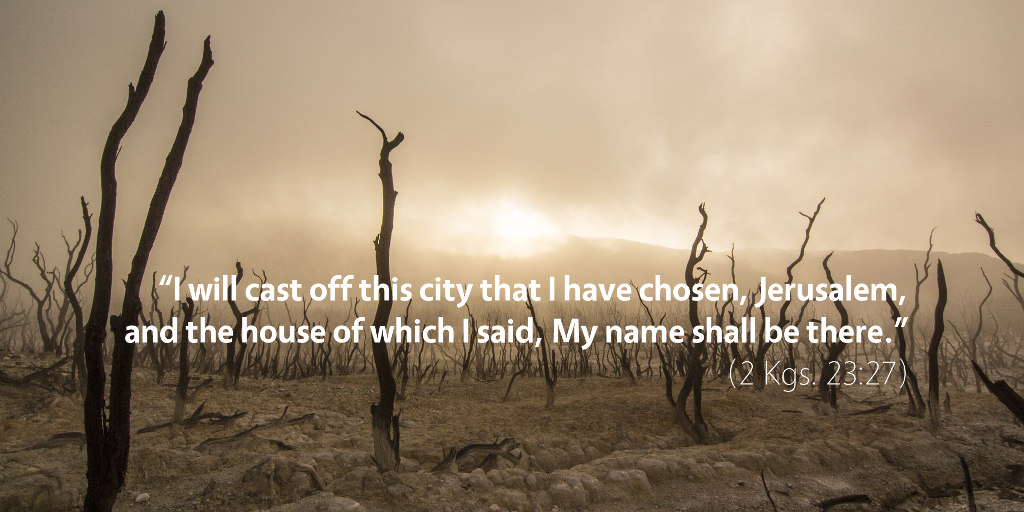Bible Readings for November 10th
2 Kings 23 | Hebrews 5 | Joel 2 | Psalm 142
In 2 Kings 23, we read a detailed account of the main reforms Josiah implemented in Judah. This chapter documents the sheer greatness of Josiah as king that we began to talk about in yesterday’s meditation, but it also shows the limitations of one of Judah’s greatest kings.
Josiah’s reforms on the worship of Judah include stopping some things and re-establishing others. So, Josiah stops the extensive false worship that his father, Manasseh, had established in Judah. He destroys vessels used to worship false gods (2 Kgs. 23:4) and then he deposes priests (2 Kgs. 23:5), tears down the houses of cult prostitutes (2 Kgs. 23:7), and defiles altars, high places, and pillars used for worship (2 Kgs. 23:8–15). Finally, to fulfill an earlier prophecy, he sacrifices the priests of the high places and burns their bones on their own altars (2 Kgs. 23:20; see 1 Kgs. 13:2).
Josiah also re-establishes the observance of the Passover feast, which had not been kept properly since the days of the judges or during the days of the kings (2 Kgs. 23:22–23; cf. 2 Chron. 30). Josiah’s reinstatement of Passover signifies an important return to the true worship Yahweh had commanded.
And yet, for all of the good things Josiah does in Judah, he is unable to stem the tide of Yahweh’s wrath against Judah. Yahweh promises his wrath will not come during Josiah’s lifetime (2 Kgs. 22:20), but Yahweh also resolves yet again that “I will remove Judah also out of my sight, as I have removed Israel, and I will cast off this city that I have chosen, Jerusalem, and the house of which I said, My name shall be there” (2 Kgs. 23:27). Then, after Josiah’s tragic death in battle with King Neco of Egypt (2 Kgs. 23:29–30), Josiah’s two sons Jehoahaz and Jehoiakim both commit evil in the sight of Yahweh (2 Kgs. 23:32, 37), turning the nation back toward the idolatry that Josiah had worked so hard to eradicate from Judah.
Through the story of the Bible so far, we have seen the utter failure of every measure introduced thus far to reform Yahweh’s people. Neither the giving of the law (Ex. 32), nor the reception of the Promised Land (Josh. 24:19), nor the judges (Judg. 21:25), nor even a godly king like Josiah is capable of transforming Yahweh’s people or of turning away Yahweh’s wrath.
And yet, despite the utter failure of Judah to circumcise their hearts, we see the groundwork laid for the entrance of God’s own Son who would turn away Yahweh’s wrath by bearing it himself, and who would transform the hearts of Yahweh’s people by pouring out his Spirit. This is the point in Judah’s story where the darkness will become greatest, signaling the nearness of the dawn.
Podcast: Play in new window | Download (4.8MB) | Embed
Subscribe: Apple Podcasts | RSS | More

Scripture quotations are from The Holy Bible, English Standard Version copyright © 2001 by Crossway Bibles, a division of Good News Publishers. Used by permission. All rights reserved.


